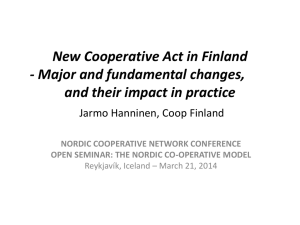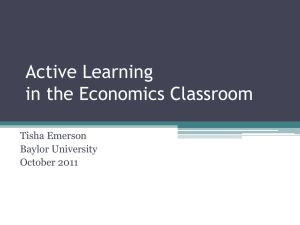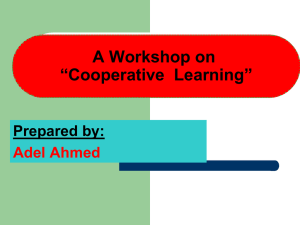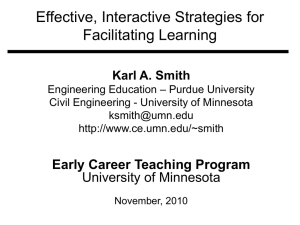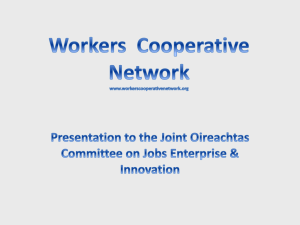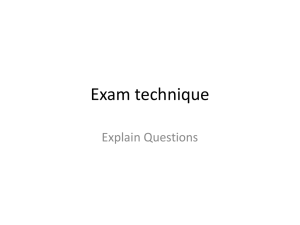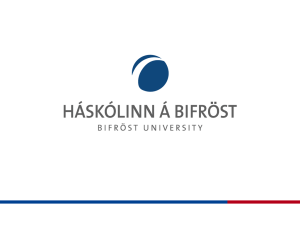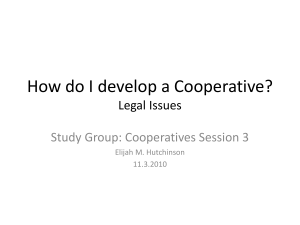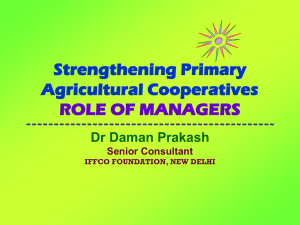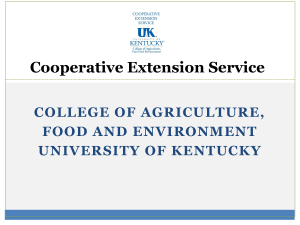(ARGUCOM) ARGUCOM - assam rajiv gandhi university of
advertisement
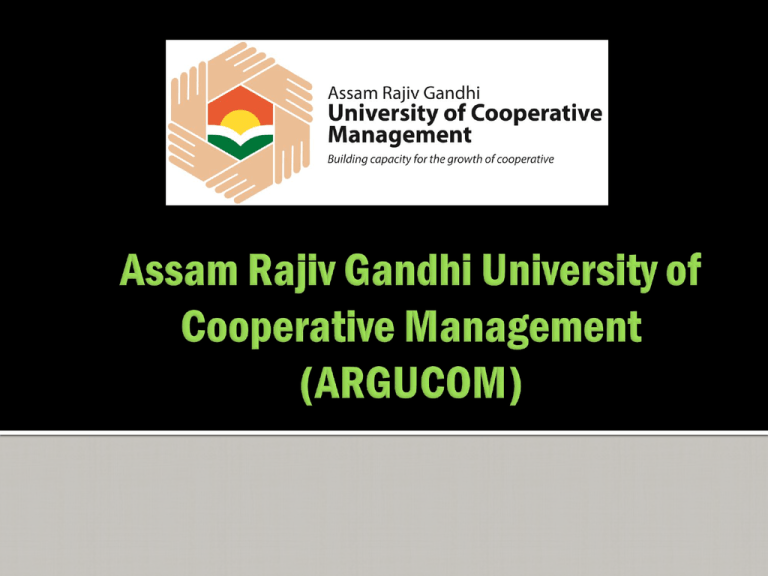
In 2010, Government of Assam in a landmark move decided to set up the first University of Cooperative Management in India. ‘The Assam Rajiv Gandhi University of Cooperative Management Act, 2010’ passed in State Assembly. MoU signed with IIM-A in September, 2010 for academic architecture and blue print for a road map to make the University as an Institution of Excellence. First Vice Chancellor appointed on 26th Dec, 2011. UGC in Feb, 2012 gave recognition empowering the University to award degrees U/S 22 of the UGC Act, 1956. First Core faculties/staff appointed in Sept, 2012. dr.rafiquzz@yahoo.com 2 First National Conference on ‘Networking of Cooperative Organizations for Education’ organized on 24th Sept, 2012. Temporary Campus of the University inaugurated at Sivasagar on 3rd Oct, 2012. The first 3-day training program of Cooperators on ‘Leadership and Change Management’ conducted between 4th to 6th Oct, 2012. University provided with 83 acre of land at Sivasagar and also fund for initial works. dr.rafiquzz@yahoo.com 3 Why a University Autonomy Sustainability with corpus fund and lean structure Interface between scholars and cooperators Research for learning points Flexibility to adjust progressive courses. What kind of University Campus University Non- affiliating Focused for Institution of Excellence To grow bit by bit but how? Stress on quality not quantity Courses specially designed Definite target groups such asi) Cooperators ii) Regulators iii) Professional leaders/ managers Collective and Cooperative attitude in all respects. Everywhere focus is on individual but weaker sections can march only in groups. dr.rafiquzz@yahoo.com 4 Long history of Cooperative and failed experience. No stress on education. Openness of economy led to stiff competition. Weaker section marginalized. Need today is more to infuse-cohesiveness among the weak to improve skills. Weak can take part in fast race only in groups and not individuallyotherwise development for them will remain a far cry. Many village activities need collective (legal or otherwise) approach for which they need motivation, training and skill development. Regular interface with academicians/ scholars needed for the marginalized groups. Research needed to explore ideas/ learning points/ develop modules best suited for cooperators/ regulators and leaders- managers, etc. Exchange of ideas with similar institutes in the country essential. Rural economy upliftment lies on emancipation of marginalized groups only. Legal studies needed for removal of impediments, if any, in revamping of cooperative movement. dr.rafiquzz@yahoo.com 5 The University will have 5 (five) Schools namely, School of Entrepreneurship and Management (SEM), School of Ecology and Sustenance (SES), School of Innovation and Technology (SIT), School of Culture and Media (SCM), School of Public Policy and Law (SPL). On top of these five schools lies the holistic pursuit of Cooperative Movement. The VISION of ARGUCOM is to be an Innovative, Growing and Multi-disciplinary Institution of learning committed to the principles of cooperation for socio-economic transformation with an international perspective and sensitivity to local needs. The MISSION statement of ARGUCOM is to initiate, strengthen and sustain the cooperative movement, collective action and organisations that develop and sustain the society at large. dr.rafiquzz@yahoo.com 6 The University stands on Four Pillars viz. education, research, training and promotion, shortly ERTP. On the macro level, 3 (three) target groups have been identified as main stakeholders. They are: Cooperative leaders and farmers, Officials of Cooperative Department meant for regulatory functions, Professional managers (to be groomed) for managing the cooperation. dr.rafiquzz@yahoo.com 7 First UG Course on Cooperative Management to award degree in BBA (Cooperation) started on 1st July, 2013 with 32 students (22 boys and 10 girls). Students’ Body Election, Varsity Week. Cooperative Run, Cultural and Sports event organized for the students between 14th Nov to 20th Nov,2013. Industrial Exposure Visit to a Tea Garden on 5th December,2013 and Student Exchange Programme between 21st March and 4th April, for 15 days at IIFM, Bhopal organized. Dr. Asad R. Rahmani, Director, Bombay National History Society (BNHS) conducted on 10th March, 2014 one day long workshop on ‘Bird Census: Techniques & Studies’. NFDB, Hyderabad funded 11(eleven) training programmes for fish farmers. 315 such farmers were trained. More training programmes under RKVY for an outlay of Rs 62.50 lac have been received. Training to start in July, 2014 dr.rafiquzz@yahoo.com 8 Financial Support from State Govt. through annual budget received as follows: 2010 – 11 : Rs 1.00 Crore 2011 – 12 : Rs 0.75 Crore 2012 – 13 : Rs 1.10 Crore 2013 – 14 : Rs 1.10 Crore 2014 – 15 : Rs 1.16 Crore (Expected) Outside financial supports are NFDB CSR RKVY Rs. 5.76 lac Rs 0.95 lac Rs 62.50 lac dr.rafiquzz@yahoo.com 9 Association already made are as follows: Indian Institute of Management (IIM), Ahmedabad National Law University (NLU), Delhi Indian Institute of Forest Management (IIFM), Bhopal Developing Library Network (Delnet) Association of Indian Universities (AIU) Looking forward for other associations like Institute of Cost Accountants of India (ICAI) Jindal Global University and North Dakota State University, USA. dr.rafiquzz@yahoo.com 10
